JACKSON, Miss. — On the fourth floor of the Mississippi Department of Health, Dr. Daniel Edney sits at a desk cluttered with reports and medical journals. As the highest-ranking public health official in a state that regularly ranks lowest in nearly every health indicator, Edney’s got a lot on his mind.
The elevator to his office is broken. A bucket and pieces of his ceiling sit in a pile on his floor — debris from a leak he can’t ignore much longer. “Public health in all its glory in Mississippi,” he said. “We’re trying to fix things.”
His to-do list is long: maternal death, infant death, obesity, heart disease, diabetes, teen births, poverty. The need goes on and on, while Mississippi spends less money on public health per resident than almost any other state. Nearly a third of the state’s rural hospitals are at “immediate risk” of closing. More than 40% of the jobs at the health department are currently unfilled.
This spring, less than a year into his tenure, another problem dropped in Edney’s lap: childhood vaccines.
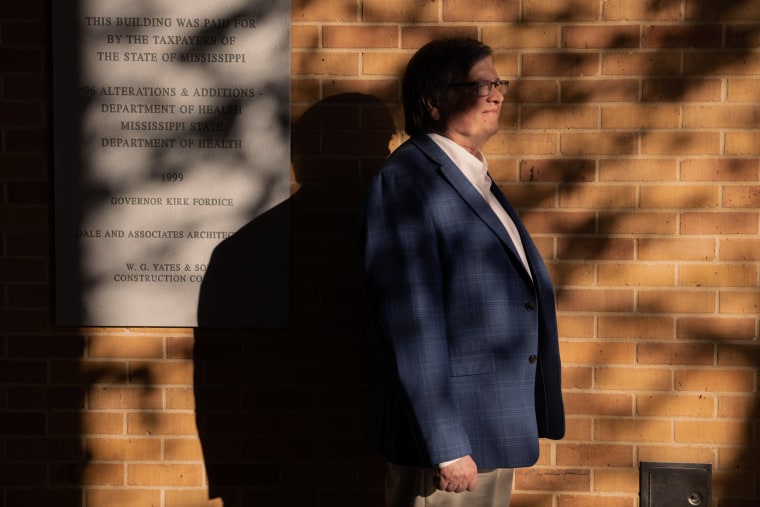
For the first time in more than 40 years, Mississippi began granting religious exemptions from the state’s strict requirement that every child receive five vaccines — diphtheria, tetanus and pertussis; polio; hepatitis; measles, mumps and rubella; and chickenpox — before attending day care, public school or private school.
Mississippi had previously allowed children to opt out only if they had a verified medical condition that precluded vaccination. It was one of the most stringent standards in the country and year after year the state led national government rankings, with 99% of its kindergarteners being immunized.
“Tell me something else that the state of California uses Mississippi as a model for,” Edney said, noting California’s 2015 ban on nonmedical vaccine exemptions after a measles outbreak at Disneyland. “This was our shining star.”
But this year, thousands of families in Mississippi have requested exemptions on religious grounds.
The change wasn’t a result of a vote or legislative action. Rather, it was a legal assault, the realized dream of a local conservative anti-vaccine club that had long tried and failed to change Mississippi’s laws — until it joined forces with a prominent national anti-vaccine organization on a well-timed lawsuit, filed in one of the country’s most conservative courts.
Nationally, vaccine hesitancy and school exemptions reached record highs in the last school year, in which 3% of kindergarteners were granted a vaccine exemption, according to the Centers for Disease Control and Prevention. At that point, Mississippi was one of six states that didn’t allow religious exemptions; now there are five.
“You think the exemption rates were high this year?” anti-vaccine activist Del Bigtree asked on his internet show last month. “Wait til you see Mississippi added to this.”
Edney has worked out the math for just how many parents can refuse before the whole population is under threat from preventable diseases.
“So long as we can stay under 3,000 exemptions, we should be OK,” he said.
So far, the state has granted 2,235 religious exemptions and roughly 500 medical ones. They’ve outpaced Edney’s initial estimate. He is visibly worried.
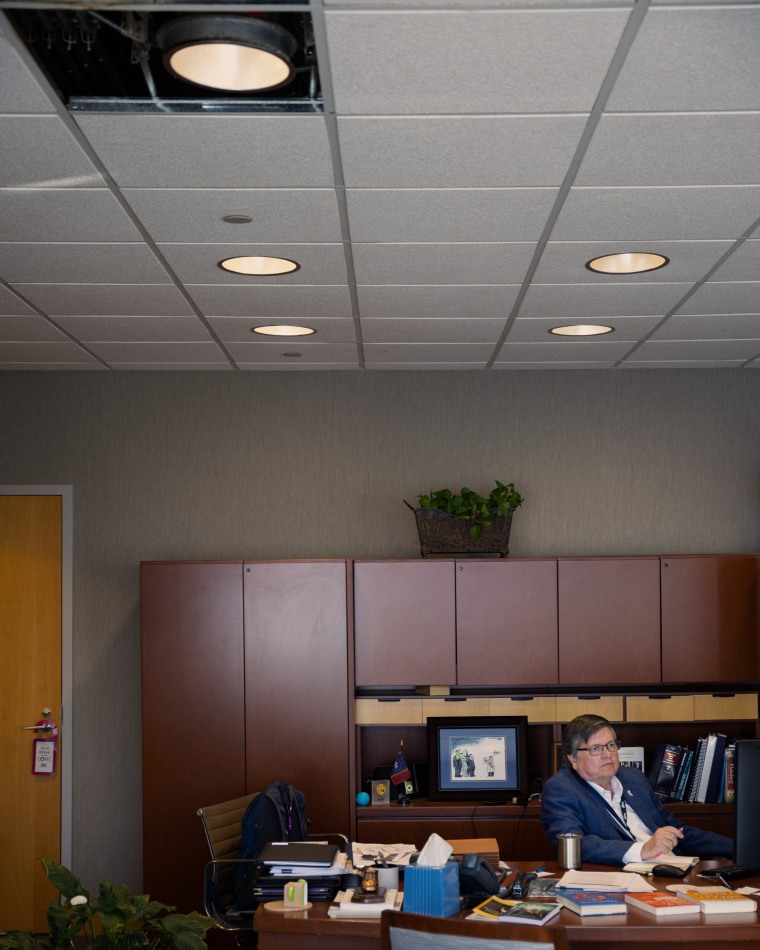
Exemptions are still rolling in — more slowly now than at the beginning of the school year, but climbing. They are about 250 kids away from the state reaching what Edney calls “critical mass.”
For now, Edney is focused on the pockets of the unvaccinated, geographic clusters that aren’t typical areas of public health concern. The exemptions are coming largely from the middle and southern parts of the state and along the Gulf Coast, home to the whitest and wealthiest Mississippians, where health care, education and privilege are abundant. This means that when long-dormant preventable diseases reappear in Mississippi, they’ll probably first infect kids who otherwise enjoy the state’s best health outcomes: something Edney describes as “a reverse health disparity.”
But the consequences of these outbreaks, including the dismantling of herd immunity and the taxing of public health resources, will almost assuredly trickle down to low-income and minority communities, kids at the other end of the health equity spectrum, with less access to medical care, as well as those who are unable to be vaccinated because of medical conditions.
“If we’re not careful, then we’ll be right back to where we were in 1960,” Edney said.
As he juggles a winter flu surge, and merely keeping the lights on in county health offices, childhood vaccines are the last thing Edney needs on his plate.
“Public health is already challenged here,” he said. “We’ve not had to have vaccine campaigns to educate the public. I did not have to have an aggressive disease investigation framework to work outbreaks because we don’t have them. We don’t have them at all. There’s no need to invest in infrastructure. Now we’re gonna have to and I don’t have the resources to do it. But I have to. I have to make it happen.”
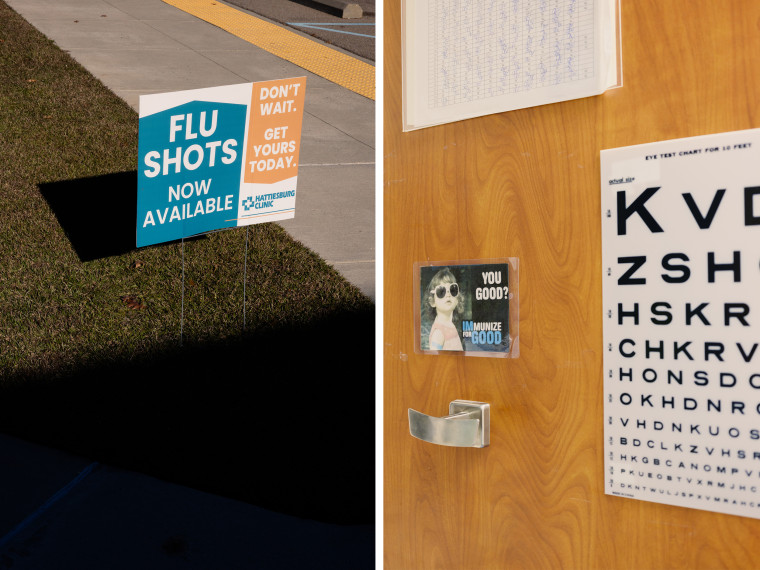
In the late 1970s, even with a free vaccination program, uptake among children was low and measles was spreading in Mississippi. The state Legislature responded to the outbreaks and a federal call to make immunization a priority with its first modern compulsory vaccine law in 1978.
By the next school year, parents were lining up around county health department offices and the program to vaccinate all of Mississippi’s school children was deemed a success. “There have been a few religious objections, and a few felt it violated freedom of choice, but this has been very minor in Mississippi,” an official tasked with the state’s effort told a local reporter.
An exemption for parents with religious objections had been codified into existing law, but it was specific — it only applied to members of religious groups that believed in faith healing. Charles Brown, a chiropractor opposed to vaccines but whose religion didn’t technically forbid them, sued so he could enroll his son in first grade.
Instead of granting an expansion of the religious exemption, in 1979 the Mississippi Supreme Court did away with it altogether. Citing a 1905 Supreme Court ruling that upheld Massachusetts’ compulsory smallpox vaccination law, the Mississippi Supreme Court found that the health of school children trumped their parents’ beliefs, religious or otherwise. Any such exception, the court wrote, violated the Fourteenth Amendment’s right to equal protection of the law, and “would require the great body of school children to be vaccinated and at the same time expose them to the hazard of associating in school with children exempted.”
Mississippi hadn’t granted a religious exemption since, and no one had challenged the 1979 ruling until 2022, when seven parents sued Edney, along with the state’s attorney general, Lynn Fitch, and several school principals, with a claim that the refusal of religious exemptions violated their First Amendment rights.
“We didn’t see a federal lawsuit coming, but we weren’t surprised,” Edney said. “It was about the only avenue left.”
MaryJo Perry had been trying for a decade. Perry is the president of Mississippi Parents for Vaccine Rights, a self-described “health freedom” group, who said she waded into the crusade after two of her three children had been injured by vaccines — her middle son afflicted with seizures and her oldest with “some autism-like stuff.” Those injuries weren’t permanent, she said.
Perry is a Christian. Her religion doesn’t officially dictate her stance on vaccines, though. Perry prays about every decision, big or small, and says that when she prayed about vaccines and the people who promote them, something “didn’t sit right.”
From her brother-in-law’s horse stables in Brandon, Perry, 57, sat on the tailgate of her truck, and explained how MPVR grew from “just a handful of us girls” to a thousands-strong conservative movement, a success story she attributes in part to her identity and station.
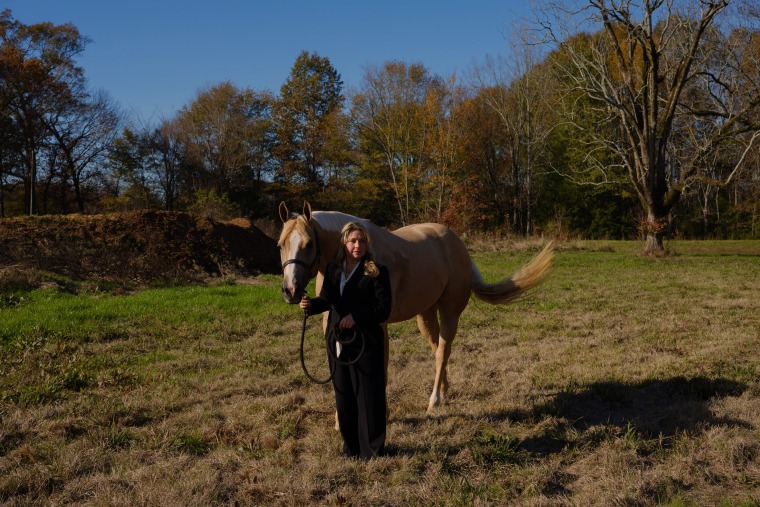
“When you have affluent stay-at-home moms, we have time to do that kind of thing,” Perry, whose husband works in construction, said of her activism. “When a mom is educated, and she’s home with their children, her mind doesn’t stop working. And that was me.”
MPVR started as a small Facebook group of parents and grandparents, frustrated with Mississippi’s strict vaccine law. Perry and another activist formally organized the group and in 2013 they started showing up at the state Capitol. Group photos from the time show less than a dozen members in matching shirts holding signs calling out state legislators by name.
Affectionately known as ”moms for measles” by some of the lawmakers, MPVR kept coming to Jackson with their children to protest and push legislators to vote on their bills.
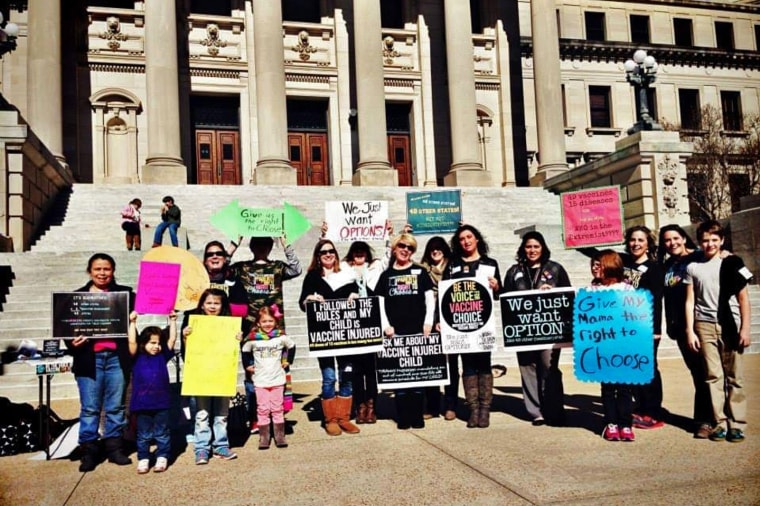
Bills proposing changes to the vaccine law were introduced every year in the state, many of which sought nonmedical exemptions, but they rarely escaped the health committee for a full vote. None of them passed, likely because every year, state and local medical organizations countered MPVR rallies with their own calls to action. Dressed in white coats, doctors met with lawmakers and urged them not to change the single health policy that was working for Mississippi children. They flooded state switchboards and wrote op-eds.
“If you want to get physicians in Mississippi stirred up, then mess with the vaccines,” Edney said. “The medical community always rallied.”
Perry wasn’t convinced by their activism or expertise. “I don’t think doctors are any smarter than a lot of us moms,” she said.
Despite the lack of legislative action, MPVR raised money and increased membership. The group put up billboards that asked, “Are vaccines killing our babies?” and connected to the national anti-vaccine movement.
In 2016, Perry met activist Bigtree, a former daytime television producer who had pivoted to anti-vaccine documentaries, as he promoted his film, “Vaxxed,” with a multistate bus tour. Perry urged members to see “Vaxxed,” promoted it at Tea Party events, and pushed movie theaters to show it. And over the years, Bigtree became a semi-regular fixture at MPVR events. In 2018, Bigtree spoke at a conservative luncheon for Mississippi lawmakers, in his words, a “Bible-thumping” speech in which he compared the serpent in the Garden of Eden to doctors who administered vaccines to children.
With 2020 came the opportunity MPVR and Bigtree had been hoping for. The pandemic lit up the existing anti-vaccine movement, which wooed a whole new group of supporters. As governments and employers mandated Covid vaccines, MPVR exploded. It now has more than 8,400 members, according to Perry.
Bigtree’s Texas-based nonprofit, the Informed Consent Action Network (ICAN), grew into one of the country’s best-funded anti-vaccine organizations. In recent years, it has funneled much of its war chest to a New York law firm, Siri & Glimstad, with payments totaling $13.8 million. Since 2017, according to tax documents, ICAN’s largest single expenditure has consistently gone to the firm’s legal services.
Aaron Siri, a former corporate lawyer until a “twist of fate” led him to work on vaccine cases, now leads a 16-person team at the firm that he calls “the largest vaccine practice in the world.” Siri is among the best-known in a cottage industry of vaccine-focused lawyers who racked up legal wins during the pandemic, part of a wave of conservative think tanks, Republican state attorneys general, and religious freedom groups that took aim against state and local governments, claiming Covid-era policies infringed on religious freedom.
It was that winning streak, the arrival of conservative Catholic Justice Amy Coney Barrett to the Supreme Court, and the court’s seeming commitment to elevating religious freedom above other constitutional rights that inspired Siri to sue the Department of Health in Mississippi.
“The constitutional landscape around religious freedom in America had changed over the last two years, and we took advantage of that,” Siri said on an episode of Bigtree’s internet show, The HighWire, in April.
Through a representative of his organization, Bigtree declined to be interviewed. Siri did not return emailed interview requests.
For years, Perry said lawyers had told her there was no legal route to religious exemptions. But she had kept passing on the names of potential plaintiffs to firms aligned with conservative and health freedom causes, including Siri. And in September 2022, Siri filed suit in federal court — in the Southern District of Mississippi. He argued that Mississippi’s strict vaccine law had violated the Constitution and that if the health department granted medical exemptions, secular by nature, the department must also grant religious ones.
The plaintiffs, self-described deeply religious Christian parents, wrote in declarations to the court that they had been forced to homeschool or move across state lines rather than vaccinate their children. These parents wanted to keep their kids unvaccinated, they said, because they opposed abortion. (Some vaccines — like the ones for chickenpox and rubella — are made by growing viruses in fetal cell lines obtained from two elective abortions in the 1960s.)
Several plaintiffs said they eschewed vaccines and medicine altogether because it betrayed a distrust in their God. “Because vaccines are preventative measures for illnesses one may possibly acquire in the future, taking a vaccine means we do not trust His creation in ourselves or His plans,” one plaintiff wrote.
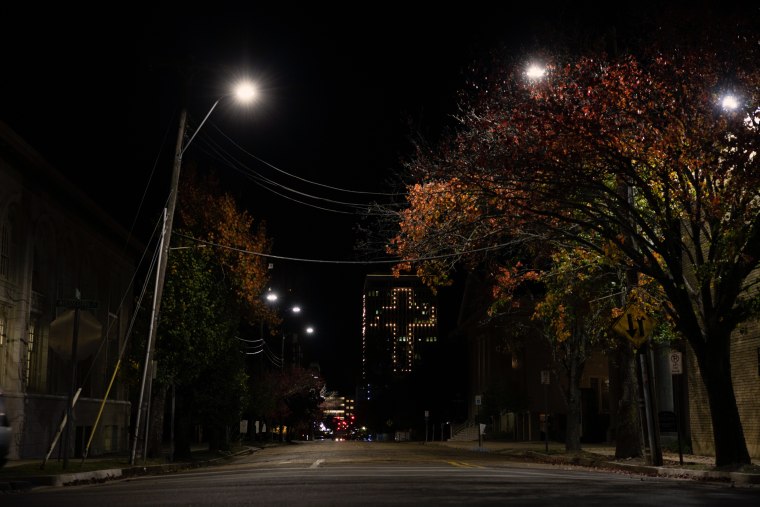
Most organized religions and religious groups support vaccinations, and research has documented religious exemptions to school vaccines are often abused by parents who oppose vaccines on other grounds.
Edney, as head of the state’s health department, would have typically been defended by the state’s attorney general, who was also named as a defendant in the lawsuit. But Mississippi’s attorney general, Lynn Fitch, a Republican known for her support of the law that overturned Roe v. Wade and of legal efforts to reject the results of the 2020 election in support of Donald Trump, declined to defend the state’s law.
Instead, Fitch effectively sided with the plaintiffs. Without a religious exemption option, she wrote, compulsory school vaccination “would substantially burden the rights of some people with sincerely-held religious objections.” But Fitch argued that federal court wasn’t the place for this fight because a state law passed in 2014, which allowed businesses to refuse services based on religious beliefs, could be applied to the vaccine law, too.
“One of an attorney general’s jobs is to be the voice of the state’s law, to stand for its Legislature and agencies,” said Dorit Reiss, a professor at the University of California College of the Law, San Francisco, who studies vaccine law and policy. Reiss said it was “very rare” for an attorney general to refuse to defend a state law in court as Fitch did.
But an ideological alliance between a Republican attorney general and the anti-vaccine movement isn’t so unusual. Nearly two dozen Republican state attorneys general have sued to block federal rules that mandated Covid vaccination or testing. And the most successful anti-vaccine organization, Robert F. Kennedy Jr.’s Children’s Health Defense, sought access to the Republican Attorneys General Association with a $50,000 contribution in 2021.
Without Fitch’s backing, Edney found his own attorney, and the attorney general’s office paid for his services. Through a representative, Fitch declined an interview request.
In April, after a brief morning of arguments and testimony, U.S. District Judge Sul Ozerden ruled from the bench. About 40 moms and children from MPVR families filled the rows behind ICAN lawyers; the Mississippi government’s side was mostly empty. Three of the plaintiffs testified: a pastor whose daughter couldn’t go to his private Christian school, and two mothers who moved to Alabama so their unvaccinated children could attend school.
Ozerden ordered Edney to create a process for religious exemptions by July 15. If Edney failed to comply, the entire vaccine law would be struck down.
“There were lots of hugs and tears,” Perry said. Looking up at the sky, Perry reenacted the moment they left the courthouse. “I remember walking outside, taking a breath of air, and thinking, it just felt freer.”
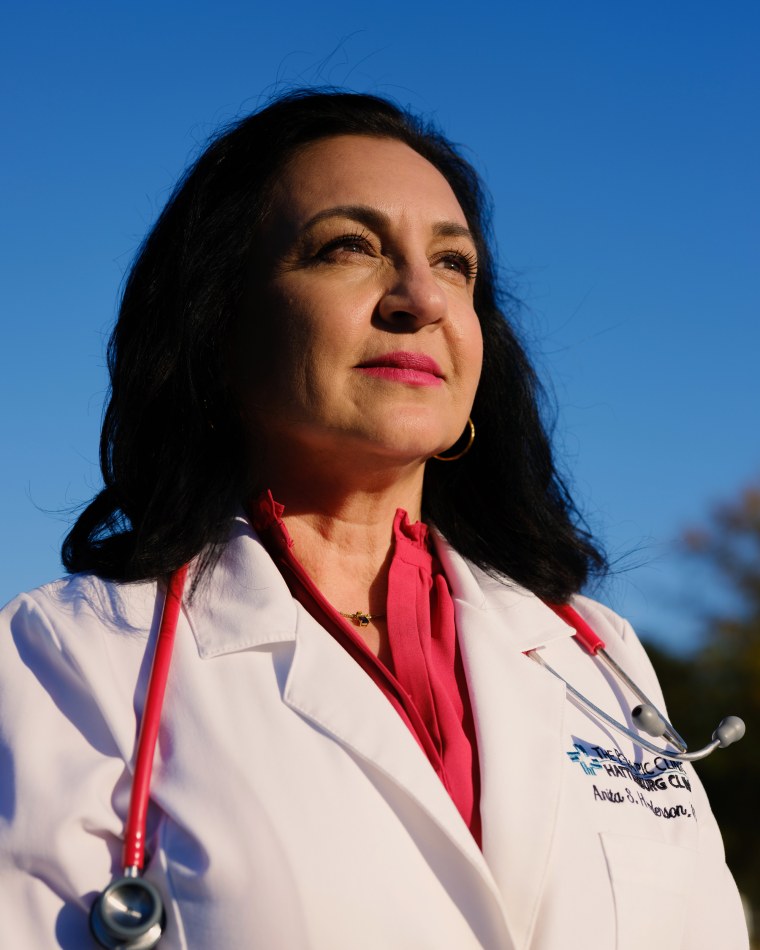
On July 15, the Mississippi Department of Health posted its religious exemptions policy online. Fifteen miles to the north, at a wedding venue in Madison — Mississippi’s wealthiest county — Perry and members of MPVR, along with their allies, partied. Hundreds of tickets were sold. There was live music, appetizers, a cash bar and a photo booth with oversized props. The guests of honor were Bigtree, Siri and longtime ally state Sen. Chris McDaniel, who was running for lieutenant governor at the time. (He lost.)
As MPVR celebrated, pediatricians across the state mourned.
“We were all here, crying,” Dr. Anita Henderson said from her pediatric clinic in Hattiesburg, in southern Mississippi, where she’s worked for 28 years.
Henderson was thinking about the potential casualties of vaccine-preventable diseases like measles, the consequences that she expects from MPVR’s activism and the court’s decision.
“They’re not the ones who have to tell families their child might have seizures for the rest of their lives, that they may lose their hearing, that they may be developmentally disabled forever, if they survive,” she said.
Henderson said she’s seen “an uptick” in the number of families, particularly white parents, declining vaccines this year. In response, she’s forming a coalition of physicians, nurse practitioners, pharmacists, health department officials and community leaders. They’ll focus on education and access, Henderson said.
“We can only take the opportunity to educate our families and explain to them the importance of vaccines,” she said. “And hope they change their mind.”
For now, Dr. Geri Weiland’s families are listening.
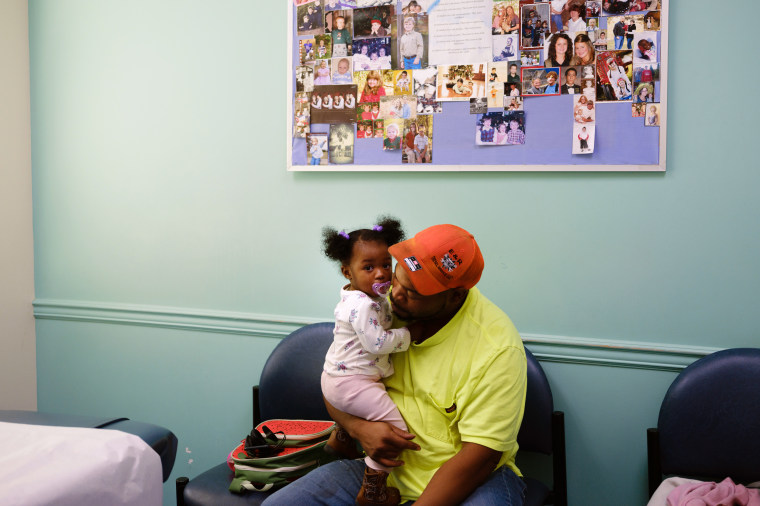
A pediatrician for the last 40 years in Vicksburg, a city at the foot of the Mississippi Delta, Weiland said her patients — many of them rural and poor — are maintaining near-universal levels of vaccination.
Now, Weiland is thinking about the kids who take medicine that lowers their immune system, those with cancers, rheumatoid arthritis or severe asthma.
“It’s unfair that those children are more at risk than they should be now,” she said. “And these are public school children, a very skewed population, a more minority and lower socioeconomic group.”
Since April, ICAN has used its win in Mississippi as an opportunity and a roadmap for the future. News of the religious exemptions has been featured on the website’s homepage for eight months. For $20, fans of Bigtree’s show can buy a pearlized Christmas ornament that reads, “Mississippi Free in ‘23.”
Calling it “one of the primary goals” for next year, Bigtree announced a million-dollar matching fundraiser sponsored by several of ICAN’s largest donors, aimed at filing lawsuits targeting religious exemptions in the five remaining states that ban them: California, Connecticut, Maine, New York and West Virginia.
Success in other states isn’t assured. Earlier this month, a federal court upheld Connecticut’s laws against religious exemptions. And a similar lawsuit Siri filed for parents associated with the activist group West Virginia Parents for Religious Freedom failed in August, though the state attorney general also took the plaintiff’s side in the case. Siri has filed an appeal.
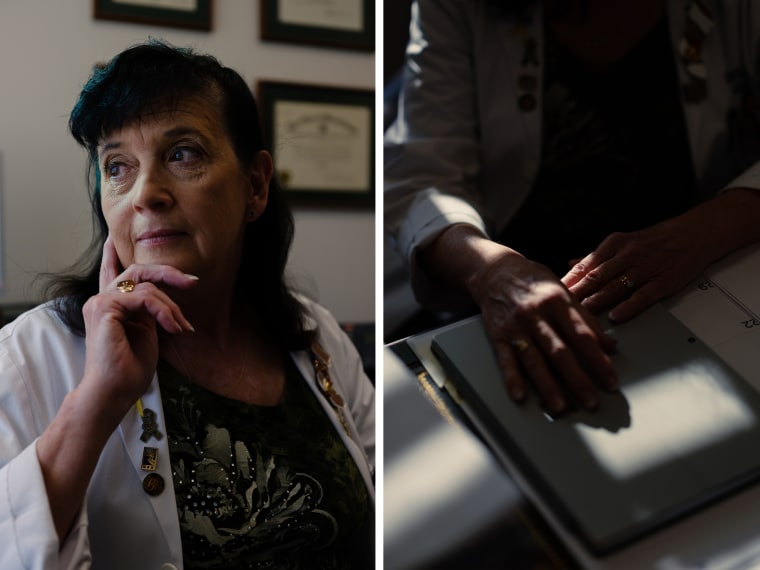
Doctors watching the national vaccine landscape said Mississippi was a battle the country could not afford to lose.
“It’s just one more brick that’s removed from our public health infrastructure, from confidence, from protection of our population,” said Dr. Yvonne Maldonado, professor of pediatric infectious diseases and health research and policy at Stanford Medicine. “There are only 51 bricks, 50 states and D.C., and we’ve already pulled out 45 of them.”
Edney, Mississippi’s state health officer, said he didn’t see the point of fighting the ruling, a challenge that would land in the 5th U.S. Circuit Court of Appeals, the country’s most politically conservative. More important, any further legal challenges would come from the health department’s budget.
MPVR will be back at the state Capitol in January when the legislative session starts up again, fighting to codify the ruling on religious exemptions into state law.
Perry, who also helms a MPVR political action committee dedicated to raising money for conservative and “health freedom”-focused candidates, said they’ve got another target: getting rid of the state health officer. Perry wants Edney’s position, currently an apolitical appointment by the Board of Health, to be an elected one.
With the wind at her back, Perry is confident about her chances and her movement.
“I’m not concerned about being wrong,” she said, “because the scripture says, ‘Where the Spirit of the Lord is, there is freedom.’”




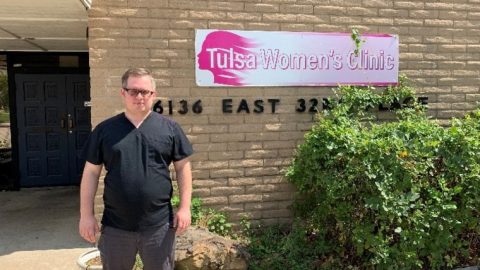

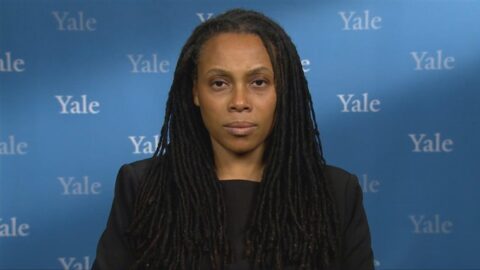
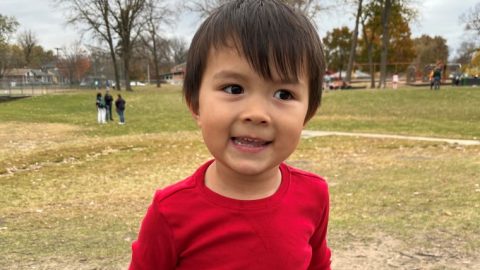
Recent Comments